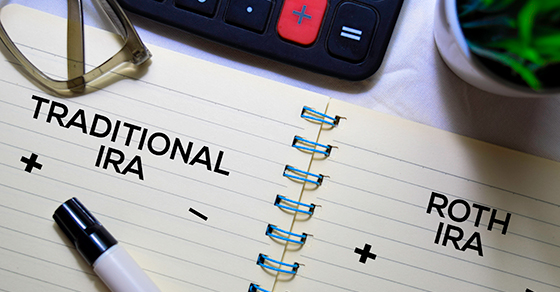
If you’re getting close to retirement, you may wonder: Are my Social Security benefits going to be taxed? And if so, how much will you have to pay?

If you’re getting close to retirement, you may wonder: Are my Social Security benefits going to be taxed? And if so, how much will you have to pay?

If you’re planning your estate, or you’ve recently inherited assets, you may be unsure of the “cost” (or “basis”) for tax purposes.

As you may have heard, the Coronavirus Aid, Relief and Economic Security (CARES) Act allows “qualified” people to take certain “coronavirus-related distributions” from their retirement plans without paying tax.

If you’re age 65 and older, and you have basic Medicare insurance, you may need to pay additional premiums to get the level of coverage you want. The premiums can be costly, especially if you’re married and both you and your spouse are paying them. But there may be a silver lining: You may qualify for a tax break for paying the premiums.

It’s often difficult for married couples to save as much as they need for retirement when one spouse doesn’t work outside the home — perhaps so that spouse can take care of children or elderly parents. In general, an IRA contribution is allowed only if a taxpayer has compensation. However, an exception involves a “spousal” IRA. It allows a contribution to be made for a nonworking spouse.

Do you want to save more for retirement on a tax-favored basis? If so, and if you qualify, you can make a deductible traditional IRA contribution for the 2019 tax year between now and the extended tax filing deadline and claim the write-off on your 2019 return. Or you can contribute to a Roth IRA and avoid paying taxes on future withdrawals.

The coronavirus (COVID-19) pandemic has caused the value of some retirement accounts to decrease because of the stock market downturn. But if you have a traditional IRA, this downturn may provide a valuable opportunity: It may allow you to convert your traditional IRA to a Roth IRA at a lower tax cost.

As we all try to keep ourselves, our loved ones, and our communities safe from the coronavirus (COVID-19) pandemic, you may be wondering about some of the recent tax changes that were part of a tax law passed on March 27.

If you’re getting ready to file your 2019 tax return, and your tax bill is higher than you’d like, there may still be an opportunity to lower it. If you qualify, you can make a deductible contribution to a traditional IRA right up until the Wednesday, April 15, 2020, filing date and benefit from the resulting tax savings on your 2019 return.

Right now, you may be more concerned about your 2019 tax bill than you are about your 2020 tax situation. That’s understandable because your 2019 individual tax return is due to be filed in less than three months.
However, it’s a good idea to familiarize yourself with tax-related amounts that may have changed for 2020. For example, the amount of money you can put into a 401(k) plan has increased and you may want to start making contributions as early in the year as possible because retirement plan contributions will lower your taxable income.
